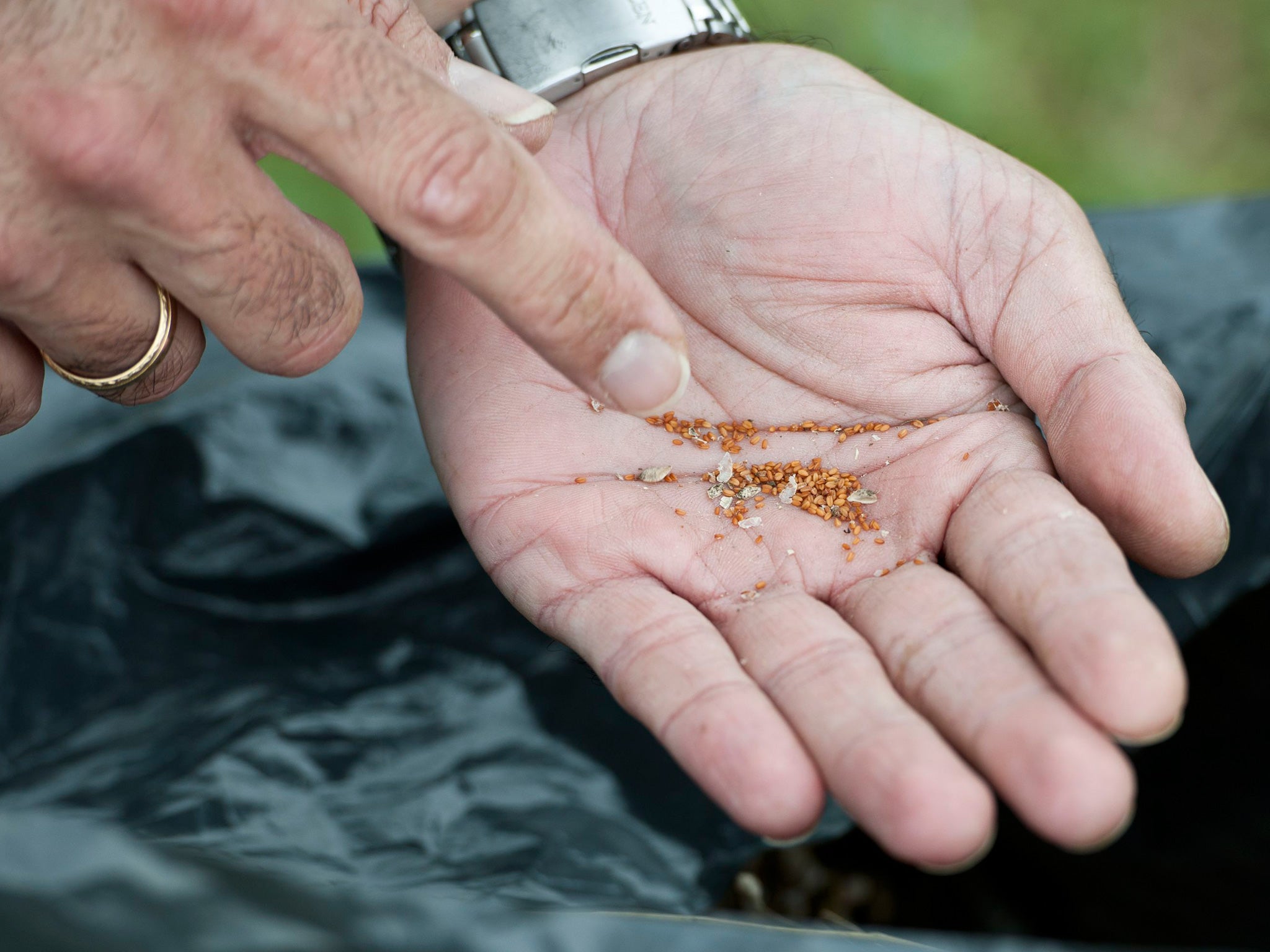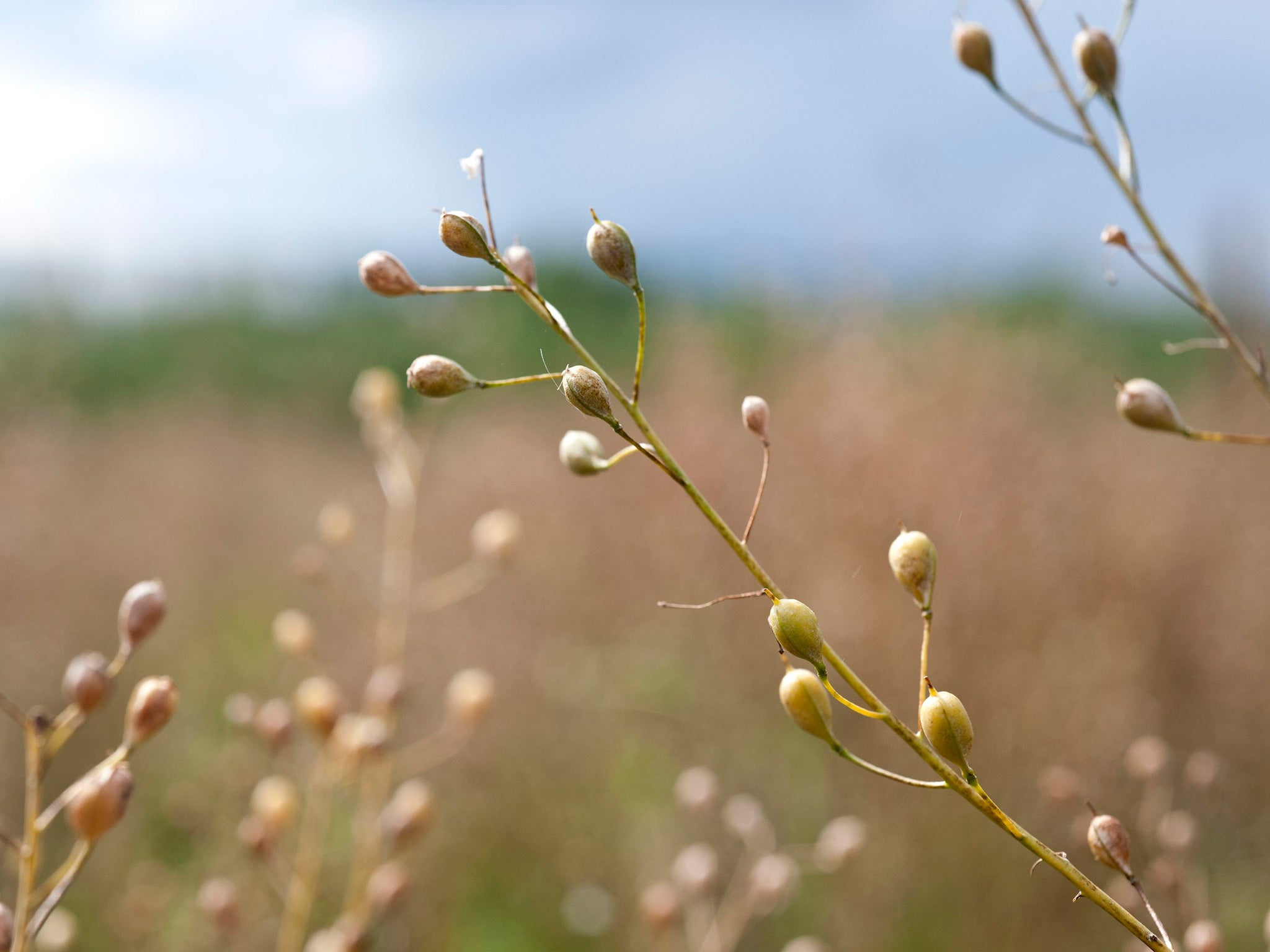New GM cereal crop produces fish oil in its seeds
The seeds produce omega-3, associated with protection against heart disease

A genetically-modified cereal crop that produces fish oil in its seeds has been grown successfully for the first time in Britain, scientists have announced.
Up to 15 per cent of the oil in the seeds of the GM crop following the first year’s harvest turned out to be the omega-3 fish oil associated with a healthy diet to protect against heart disease, the researchers said.
The government-funded field trial took place at Rothamsted Research in Hertfordshire where a similar GM field trial on aphid-repellent wheat last month failed to live up to expectations.
The fish-oil crop had been genetically engineered with up to seven additional genes involved in manufacturing the omega-3 oils in marine algae, which are then eaten and accumulated in wild fish. “Fish oil” is actually a misnomer as fish cannot make omega-3 oils and farmed fish have to eat smaller, wild-caught fish to satisfy their dietary requirements.
Scientists are trying to find alternative ways of producing fish oil for the feed used by the aquaculture industry as current feeds for farmed salmon and trout are often based on the unsustainable harvesting of smaller fish such as anchovies and sand-eels.
Tests showed that the fish oil produced by the GM Camelina sativa, or “false flax”, when grown in the field was just as concentrated as laboratory-grown GM plants with no loss of overall crop productivity, said Professor Johnathan Napier, who led the research project at Rothamsted.

“The trials were very successful and very promising because they showed that the GM trait is stable in the field and there is no trade off in terms of lower yields,” Professor Napier said.
The primary aim of the experiment is to see if it is possible to produce a vegetable oil enriched with omega-3 oils that can be fed to farmed fish, which at present have to be fed with smaller fish in order to grow, he said. Vegetable oil is also a third of the price of fish oil.
“The omega-3 fish oil trait that we have developed is probably the most complex example of plant genetic engineering to be tested in the field. This is a globally-significant proof of concept and a landmark moment in the effort to develop truly sustainable sources of feed for fish farms,” Professor Napier said.

Rothamsted scientists genetically engineered the seven synthetic copies of the algal genes into the GM Camelina plant. Fish-feeding tests based on greenhouse-grown crops have shown that the plant is potentially viable as a commercial source of omega-3 oils for the aquaculture industry, Professor Napier said.
“I think from a technological point of view I can’t see any problem. It’s feasible. There is also the economic pull as fish oil is about three times as expensive as vegetable oil,” he said.
Although it may be possible to cultivate GM Camelina as a source of fish oil for the human diet, the main aim of the project is to devise alternatives to harvesting small fish as a source of feed for the aquaculture industry, he explained.
Olga Sayanova, as senior researcher involved in the trial, said: “Finding a land-based source of feedstocks containing omega-3 fish oils has long been an urgent priority for truly sustainable aquaculture. Our results give hope that oilseed crops grown on land can contribute to improving the sustainability of the fish farming industry and the marine environment in the future.”
The study was published in the journal Metabolic Engineering Communications. Further field trials are planned under different growing conditions.
Join our commenting forum
Join thought-provoking conversations, follow other Independent readers and see their replies
Comments